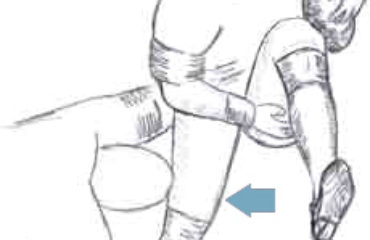Ankle Fracture ORIF
Open reduction and internal fixation (ORIF) of an ankle fracture is a procedure done to fix the broken bones of the ankle. To hold the bones in place while they heal, the Phoenix orthopedic specialist inserts medical screws, wires, pins, and/or plates. Fractures of the ankle occur as a result of injury or trauma. A simple fall for an elderly patient could result in an ankle fracture. High impact trauma, such as a car accident, will result in fractures also.
To diagnose an ankle fracture, the orthopedic specialist will need to take a complete history of the problem, conduct a detailed physical  examination, and perform certain diagnostic tests, such as plain radiographs (x-rays) and MRIs. If a complex fracture is suspected, a CT scan may be ordered
examination, and perform certain diagnostic tests, such as plain radiographs (x-rays) and MRIs. If a complex fracture is suspected, a CT scan may be ordered
Before the Procedure
Approximately one week before your surgery, write down the date, time, and location of the procedure. Also, arrange for someone to drive you home after surgery. Ask the surgical staff if you should stop any medications before the procedure, and bring your medication with you to the surgical center. If you are allergic to any food supplements, foods, herbs, or medications, report these to the surgical staff.
You will probably have some urine and blood tests done before surgery. The orthopedic specialist may also need to take x-rays and an MRI of the foot and ankle. If you have diabetes, ask a staff member what you are to eat or drink before surgery, and which medications to take the day of the procedure.
When you arrive at the surgical center, you will talk with an anesthesiologist regarding the type of anesthesia you will receive. Expect to have an intravenous (IV) line and fluids, so the anesthesia and other medications can be given. Also, you or a close family member will have to sign a consent form after careful explanation is given regarding the ORIF surgery. Make sure you ask the doctor all questions before signing this form.
During the Procedure
The orthopedic specialist will make an incision on or near the ankle. He/she will use screws, wires, plates, and/or pins to piece the bone fragments together. Additionally, a bone graft may be required to fill in any defects, as added bone makes the grafting process stronger. The surgical staff will remove any lose bone fragments, and any damaged nerves or blood vessels are repaired. Before closing the wound with sutures, x-rays are taken to assure the bones are in proper position.
After the Procedure
You are taken to the recovery area to rest while the anesthesia wears off. Nursing staff will monitor you closely for any problems. Be sure your report any symptoms to the staff. When the nurse is sure you are stabilized, you will be taken to a regular hospital room. Notify the nurse if:
- You have a fever.
- You notice infection at the site.

- The wound is bleeding.
- You experience increased pain in the ankle, foot, or leg.
- You have loss of sensation in the lower extremity.
Home Care
After an open reduction and internal fixation of an ankle fracture, you will use the RICE method to alleviate pain and swelling. Rest by not applying weight on the foot (using crutches), ice applied for 10 to 20 minute intervals three or four times each day, a compression wrap for support, and elevation of the leg to allow fluid to return easily to circulation.
The orthopedic specialist will probably order some pain medications, such as naproxen or ibuprofen, to ease the pain and inflammation following the procedure. The bandages can be removed after three or four days, depending on the surgeon’s recommendations.
Risks
There are a few risks associated with an ankle ORIF. These include:
- Bleeding
- Infection
- Damage to the muscles, ligaments, blood vessels, and/or nerves
- Stiffness, weakness, and or numbness of the ankle
- Improper healing or malalignment
- Different leg lengths
- Difficulty moving the foot or leg in normal motion
- Blood clots
Phoenix Shoulder and Knee offers the top orthopedic treatment in Phoenix, Tempe and Scottsdale. This includes treatment with a Board Certified, Fellowship Trained orthopedic doctor in Phoenix. Most insurance is accepted, call (480) 219-3342 today!



